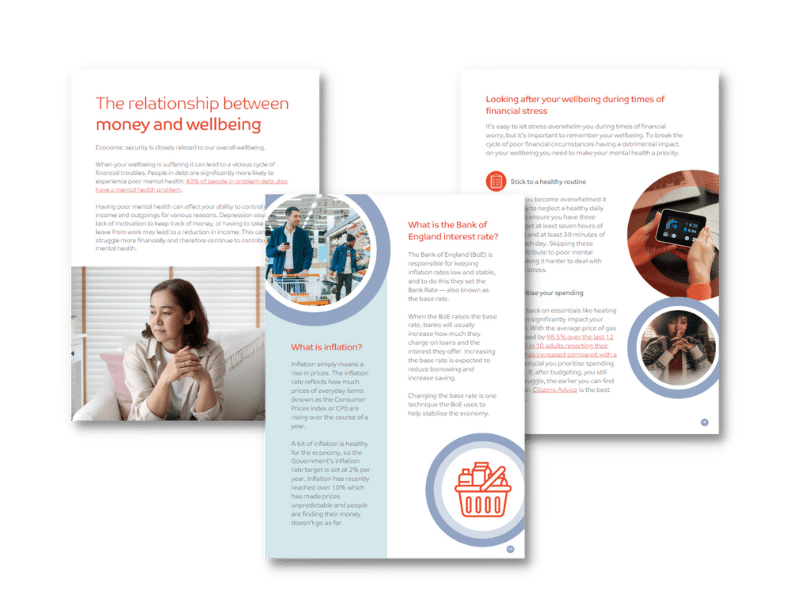With the cost of living crisis dominating newsfeeds, the sheer volume of information can feel overwhelming. Sometimes it can leave you with more questions about the situation than answers which only increases anxiety.
While you can’t control or change the situation, it’s good to keep yourself informed to stop your mind from spiralling into worst-case scenarios. We’ve pulled together some common questions and concerns about the cost of living crisis, as well as where you can go for more information on these topics.
Will I be able to afford my energy bill?
The cost of gas and electricity is something many people are concerned about. The significant increase in the energy price cap means your energy bill will be a lot higher than before.
To help, the government set up a scheme where households will receive £400 off their energy bills from October 2022, with the discount made in 6 instalments to help people throughout the winter period. You’re automatically entitled to it and don’t have to do anything. It’s worth contacting your your energy provider if they haven’t been in touch with you.
If you’re still struggling to pay, speak to your energy provider. They’ll be able to offer you some assistance and advice on your options going forward. There’s also helpful information on how to get help if you’re struggling with your energy bills.
Are we in a recession?
A recession is when the gross domestic product (GDP) growth rate of a country is negative for two consecutive quarters (around six months) or more. We aren’t currently in a recession, however recent data shows that the UK economy shrank by 0.2% in the three months from July to September 2022. If the economy shrinks again in the following three months leading up to December then the UK will officially be in a recession.
The Bank of England has warned that it expects the UK to be in recession for a prolonged period, throughout 2023 and the first half of 2024.
Why are interest rates so much higher?
The Bank of England is responsible for keeping inflation rates low and stable, and to do this they set the Bank Rate — also known as the base rate. When the Bank of England raises the base rate, banks will usually increase how much they charge on loans and the interest they offer.
Changing the base rate is one technique used to help stabilise the economy. Interest rates are increased to try and bring inflation down, so while it means people face higher borrowing costs, it’s designed to help the economy. Increasing the base rate is expected to reduce borrowing and increase saving. You can read more about why interest rates have increased on the Bank of England website.
How can I reduce my anxiety about the economy?
With the ever-changing state of the economy, nobody knows what the long-term outcome will be. The possibility of a recession might make you feel anxious, but remember that no one can predict the future.
While it can be easy to feel like you’re glued to the news, it’s better to focus your energy on the here and now. Educating yourself is important, but don’t let financial fear overwhelm you. Try to focus on the things you can control, like your own budget and financial goals, and reduce your consumption of negative news stories.
Download our free guide
For more help and advice on looking after your wellbeing in the cost of living crisis you can read our free guide. Here we go into more detail about the above points and provide you with practical advice for looking after your wellbeing.
Looking after your wellbeing during the cost of living crisis.
